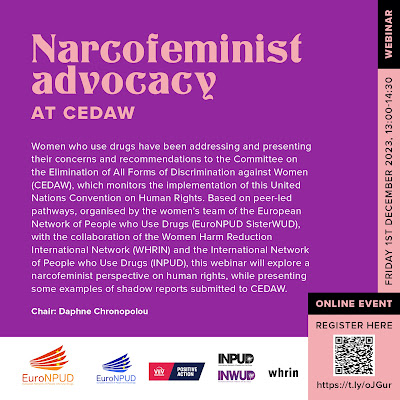WHERE ARE WE STANDING? CHALLENGES AND OPPORTUNITIES PRESENTED DURING THE HARM REDUCTION CONSORTIUM (HRC) MEETING
March 3, 2023
Written by: Marialba Quesada Abrams
Among the many global efforts to eradicate the prohibitionist and violent views associated with the War on Drugs, the annual meetings of the Harm Reduction Consortium stand out. They represent a valuable opportunity to recognize the successes of the past year and plan the next cycle of events, as well as to learn from the different perspectives that each organization brings to the main discussion.
Harm Reduction Constortium attendants possing for a group picture. Dublin, Ireland. 2023
This year’s HRC meeting was held January 24-25 at the Crokepark Hotel in Dublin, Ireland. The agenda featured a number of key elements for the effective execution of international projects. Moreover, it was possible to broaden discussions related to the decolonization of the concept of harm reduction and the impact of women’s participation in decision-making spaces related with drug policy.
DECOLONIZING HARM REDUCTION
Colleen Daniels, Deputy Director and Public Health Lead at Harm Reduction International (HRI), shared her thoughts on the need to decolonize harm reduction and use this opportinity to aknowledge the history around the access to health services for people who use drugs. Among the main challenges Daniels mentions are the analysis of the structures of harm reduction organizations and the recognition of who has access to these key decision-making spaces, which have historically been mainly violent towards POC, indigenous groups and other vulnerable groups:
“Harm Reduction has traditionally been white male dominated. The agenda for harm reduction has been dominated by white donor organizations, and doesn’t really take into account a lot of the priorities that we see are needed in different regions of the world“
Colleen Daniels
This analysis is vital to change the previous work format and give the necessary discussion spaces to different drug-using populations around the world. Colleen mentions how the priorities presented in the previous agendas formulated for drug policy and harm reduction focus on injecting substance use, which statistically speaking represents the user populations of Europe and the United States.
“If we look at Southern and Western Africa for example, we can easily see that drug use and harm reduction are just different there. […] We should be learning a valuable lesson about how harm reduction does not exist in response to HIV prevention. But the way that it’s been rolled out around in whole world is that it’s all about HIV prevention and harm reduction is just one
step into that“
Colleen Daniels
Daniels concludes her interview by noting how the concept of “white privilege” has been camouflaged in an endless number of actions that do not tend to be identified as negative or problematic, but on the contrary seek to delegitimize a problem as specific and important to eradicate as colonialism and racism in drug policy.

The Harm Reduction Consortium Meeting. Dublin, Ireland. 2023
WOMEN’S IMPACT ON DRUG POLICY
Daphne Chronopoulou (Chairwoman of The European Network of People who Use Drugs – EuroNPUD) and Ruth Birgin (Coordinator at The Women and Harm Reduction International Network – WHRIN) also shared their knowledge and perspectives around the history and impact of women in drug policy discussions.
“Drug policy has changed a lot in the past 10 years. In countries like Portugal, Spain and France women participate actively, they speak their minds and have no need to hide themselves. However, in other regions such as the Middle East, or even in my country, Greece, women are heavily affected by the (inner) stigma”
Daphne Chronopoulou
............
Chronopoulou concluded the interview by reflecting on the discussions generated during the HRC meeting and supporting the critique proposed by Daniels. In Greece’s case, there is a large number of female migrant drug users, who are treated inhumanely, kept in camps and, suffering such intense stigma, isolated from family and loved ones. These scenarios are highly painful for Daphne, as it has been difficult to find women who use drugs in her country who feel safe enough to actively participate in drug policy...

--> https://youthrise.org/







.jpg)



.jpg)




















